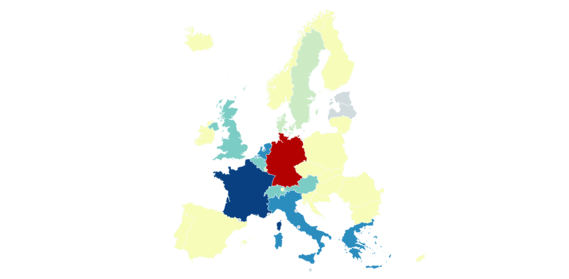The latest Dublin Update published by the Asylum Information Database (AIDA), managed by ECRE, releases exclusive figures from 14 European countries on the operation of the Dublin system for the first six months of 2018.
The Dublin Regulation continues to be predominantly “Germany’s game”. Germany was the top sender of Dublin requests (30,305) to other countries and one of the main recipients of requests (12,313) from other countries. On the other hand, Greece received 2,313 incoming requests in the first half of 2018 – the overwhelming majority coming from Germany – compared to no more than 257 in the first semester of 2017. This dramatic increase is likely linked to the European Commission’s efforts to encourage Member States to reinstate transfers to Greece. Hungary noted a drop in the number of incoming requests (1,848), most coming from France and Germany.
Countries such as Switzerland, Austria, Greece, Malta and Slovenia have sent and received similar volumes of outgoing and incoming requests for transfer of asylum seekers under the Dublin Regulation. From the perspective of administrative burden and efficiency, such ‘exchanges’ of requests demonstrates the deeply bureaucratic nature and defects of the Dublin system. Administrations invest considerable time and human and financial resources on procedures to transfer asylum seekers out of their territory, only to end up with approximately equal numbers of procedures to receive asylum seekers from other countries.
The grounds on which Dublin procedures are based are relevant against this backdrop. Observations on the functioning of the Regulation in previous years, where Dublin procedures in most countries were unrelated to family links, dependency or health and other humanitarian factors, are corroborated by 2018 statistics. With the exception of Greece, family unity considerations remain a marginal ground for issuing Dublin requests. Most countries continue to rely on “take back” provisions, followed by provisions related to documents and irregular entry.
Germany, which has heavily debated measures to speed up Dublin transfers since the summer, implemented most actual transfers (4,922), ahead of Greece (2,743), Austria (1,408) and the Netherlands (1,080). Yet, compared to 30,305 outgoing requests issued during the same period, the figure indicates that almost 85% of Dublin procedures initiated by the German authorities did not result in a transfer. The transfer rate was higher in Switzerland (23.8%), the Netherlands (27.3%) and Austria (43.9%), which had slightly less outgoing transfers but also dramatically lower numbers of outgoing requests compared to Germany. Greece, which issued Dublin requests primarily for family unity reasons, had a transfer rate of 89%.
“It is crucial for policy debate to recall that states are never required to transfer an asylum seeker to another country; Dublin grants them discretion to take responsibility and process the asylum claim at any point. Therefore spending time and resources on thousands of procedures which put people in limbo and delay access to protection, only to end up with no transfer in most cases, is not an obligation but a choice”, says Minos Mouzourakis, Senior AIDA Coordinator at ECRE.
This article was first published by AIDA*
This article appeared in the ECRE Weekly Bulletin . You can subscribe to the Weekly Bulletin here.

